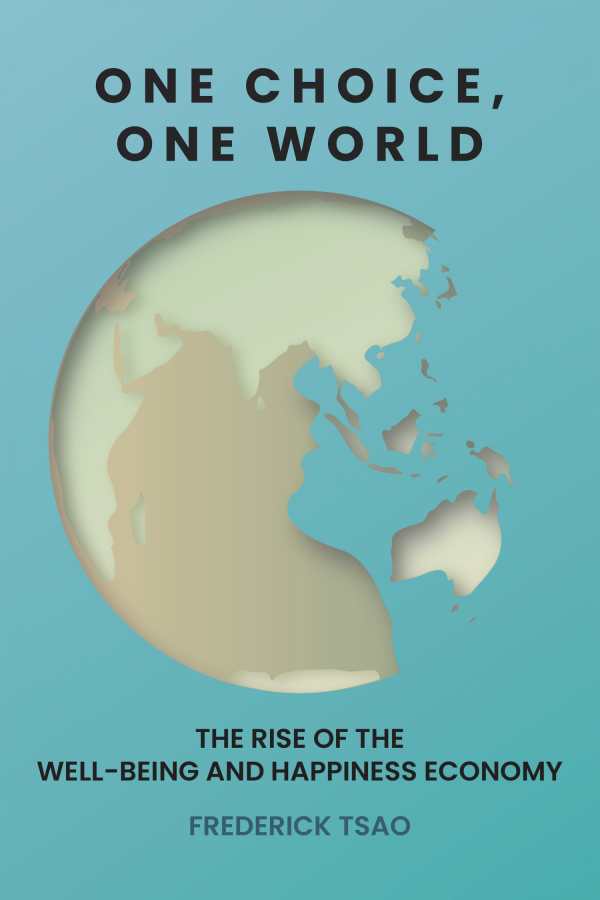One Choice, One World
The Rise of the Well-Being and Happiness Economy
Encouraging movements toward mental, physical, and economic success on a sociocultural level, One Choice, One World is a holistic—and deeply personal—book with a vision for global change.
Part memoir, part business book, Frederick Tsao’s One Choice, One World addresses global prosperity using a blend of Western and Eastern philosophy.
Tsao is a businessman who draws on his story of small-scale holistic changes to propose reassessing individual people’s places within the evolving social ecosystem. His proposals focus on collective well-being, rather than self-indulgence—“coherence and holism, through which … outer and inner worlds meet in a dance of continuous evolution.” His book asserts that future decisions and actions should be made with everyone’s best interests in mind, and that they should evolve as new information comes to light. It’s a high-minded but transformative theory—one that stands to work best if everyone follows it.
Drawing on an extensive examination of historical and current social standards, and addressing human evolution in terms of economics, science, politics, and mental well-being, the book argues that greed and the thirst for power are short-sighted. But even as it details its theory of holistic existence and explains how to implement its principles, this work is done in tandem with the book’s in-depth case study of China—here, used as an example of a country where personal well-being was prioritized via a paradigm shift in governance, focusing on the collective good. This case study runs long, however, to the extent that it becomes more burdensome than complementary.
Further, some of the book’s business and philosophical concepts are esoteric. Ample supplementary content is included to to make them more accessible, though, and explanatory graphs and timelines are scattered throughout the book. And all of the book’s conceptual declarations are made in an authoritative and convincing tone, supported by reputable sources and established theories.
As the book becomes more personal, though, it also becomes less cohesive, and some awkward word choices are involved. In telling his own story, for example, Tsao’s voice becomes more informal and less authoritative. He discusses personally implementing his suggestions toward the merging of inner and outer worlds, implying that his personal successes reflect the potential for his theory to generate change on a global scale; his examples are persuasive.
Once Choice, One World is a philosophical business book that encourages focusing on long-term benefits and collective success.
Reviewed by
John M. Murray
Disclosure: This article is not an endorsement, but a review. The publisher of this book provided free copies of the book and paid a small fee to have their book reviewed by a professional reviewer. Foreword Reviews and Clarion Reviews make no guarantee that the publisher will receive a positive review. Foreword Magazine, Inc. is disclosing this in accordance with the Federal Trade Commission’s 16 CFR, Part 255.

